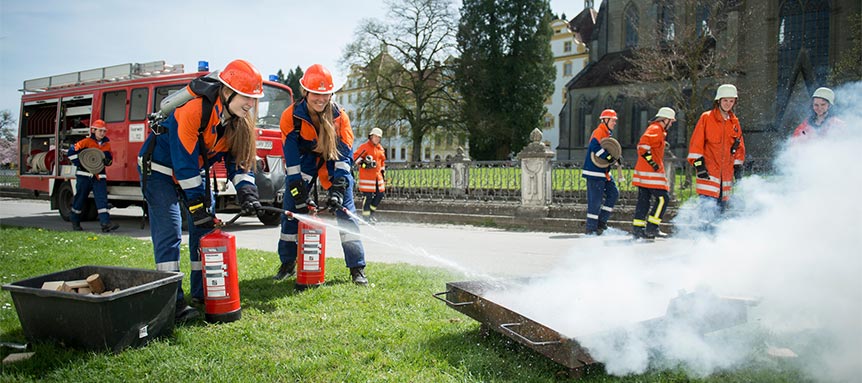
Mission Statement & Pedagogy
"Discover what's in you and become who you are!"
For over 100 years Schule Schloss Salem, as the leading boarding school in German-speaking countries, has been known for setting high standards in educating its graduates to go into the world with a well-rounded character and take on responsibility for themselves and others.

Taking on responsibility always requires courage and trust. Hence the educators at Salem encourage the children in their care from the first day forward to make use of their talents and ideas and become actively involved in the school community at each of the three campuses. Through the trust placed in them, students gain self-confidence and even reticent children rise to the challenges of the greater or smaller tasks which are given to them.

Salem students are continually challenged and fortified on all fronts – in the Abitur and the IB programmes; in their social lives by living side by side with fellow boarding students from more than 40 countries; physically in the wide range of sports and outdoor programmes; and in their recreational lives by working creatively with metal, wood, clay or textiles, in theatre, music and dance. Alongside the sound knowledge and skills they acquire at Salem there are three specific pedagogical building blocks which have a positive life-long effect: the adventures of age-appropriate empiric education; learning experiences that combine head, heart, and hand; and the obligatory commitment to actively engage in an emergency or social service (e.g. fire brigade, THW, Red Cross, DLRG, nature preservation service, care for the elderly or tutoring needy students, language training with refugees).

The particular "extra value" Salem provides is thus to be found in the shared responsibility for a harmonious co-existence in the boarding school community made up of students and educators from over 40 nations. Living in such a multi-national environment, in which different languages, ethnicities, religions and mentalities are met with daily, gives rise to a whole set of challenges. Anyone who lives in Salem quickly realizes that everyday life here requires an approach that allows barriers to be overcome – through open-mindedness, considerateness, self-discipline, empathy, respect for diversity and a purposeful engagement on behalf of others.

Salem is a place where young people can consciously experience the significance of supposedly outmoded values in their lives, and they are encouraged day in and day out to give appropriate reflection to their actions and thoughts. In this way they develop self-confidence, independence and a readiness to stand up for their convictions and defend their carefully considered positions. Since 1920 Salem has provided a microcosm, as a miniature Polis, that reflects the world of adulthood, with all its light and shadows, and prepared adolescents in a holistic manner for their future lives.
School at Schule Schloss Salem
The focus is on people
A first-class education belongs to the core of Schule Schloss Salem. It is focussed not on rote learning and routine reproduction of information, but rather on developing an understanding of facts and their interrelationships – preferably through active involvement and empirical learning.
One step at a time Salem students gain the ability to acquire knowledge autonomously and especially to apply sound principles in testing the plausibility of contradictory sources of information – a key competency for enlightened citizens in the digital world of the 21st century.
![Lehrer mit Schülern auf dem Campus Härlen [Translate to Englisch:] Lehrer mit Schülern auf dem Campus Härlen](/fileadmin/01_Internat_und_Schule/Leitbild___Paedagogik/Lehrer_mit_Schuelern_Campus-Haerlen.jpg)
At Salem the quality of classroom instruction cannot be judged by the averaged scores of our Abitur or IB diplomas because we support and challenge each and every student individually in accordance with their personal potential. Instead, with regard to the commonly strived for university path or alternative choice of professional training, it is much more meaningful and valuable to consider the specific educational biographies of each individual student from the day of admission to the day of graduation.